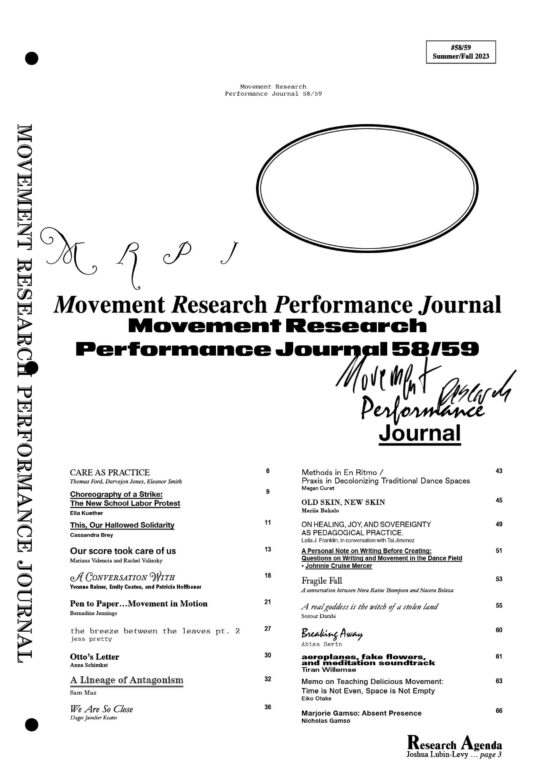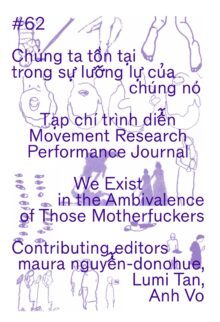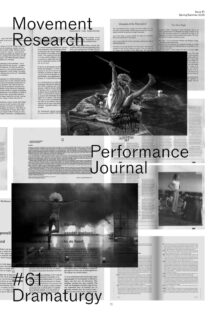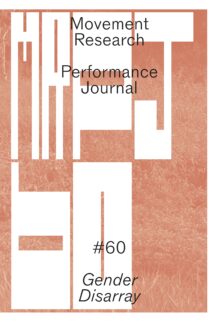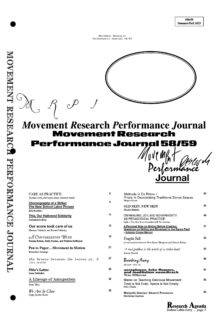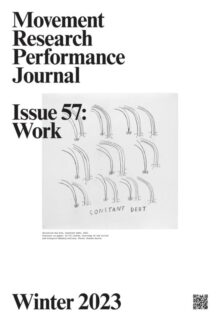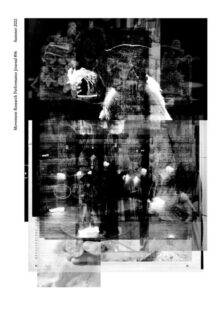Research rarely resolves the way one expects. In the Fall of 2022, the Movement Research Performance Journal set out to explore the concept of “research,” a word intrinsic to our name and our parent organization’s long history of supporting process over product. Research is such an academic concept (less so than our initial idea of doing an issue on pedagogy), and we wanted to find a way to thread our work around the relationship dance and performance practice has to systems of “higher” education. We looked to contributing editors embedded in the university system, those parasitically attached to it, and those intentionally operating outside of codified educational systems. We wanted to leave room for some contributors to celebrate how performance upends the conventional hierarchy between teaching and learning—and for others to lambast the way dance and performance has been curtailed to a university model. We wrote to prospective writers:
Keyword: Research
(n.) studious inquiry or examination, especially: investigation or experimentation aimed atthe discovery and interpretation of facts, revision of accepted theories or laws in the light ofnew facts, or practical application of such new or revised theories or laws.
Prompt: Movement Research was founded in 1978 as a self-described “laboratory” for investigating dance and movement. In its long history, the organization has prioritized giving space to artists for rehearsing, developing, and investigating—rather than presenting and producing—their work. The Movement Research Performance Journal can be seen as an outgrowth of this mission—extending the rehearsal studio into the space of the page. In its first issue, editor Richard Elovich describes the journal as “a new public space for the New York performance community…a slightly anarchic forum in which opposing ideas and aesthetics can be seriously developed and debated.” How do we understand this mission of staying in the zone of research today? How are artists (re)building pedagogy, and processes of learning, into their practice? What contemporary or historical alternative schools, and approaches to schooling, might be seen in constellation with the founding of Movement Research? How are students of dance and performance confronting the possibility and failure of an educational system predicated on both their enrichment and indebtedness?
